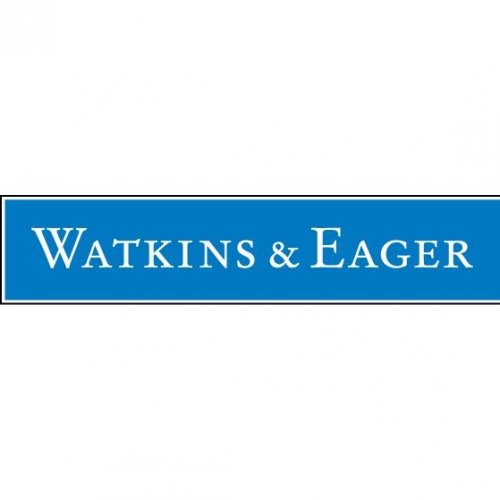Best Reinsurance Lawyers in Birmingham
Share your needs with us, get contacted by law firms.
Free. Takes 2 min.
List of the best lawyers in Birmingham, United States
About Reinsurance Law in Birmingham, United States
Reinsurance is a contractual arrangement where an insurance company transfers portions of its risk portfolios to other parties to reduce their liability. In Birmingham, United States, the reinsurance sector is vital for maintaining the stability and solvency of insurance companies by spreading risk and managing large-scale losses. The legal framework surrounding reinsurance is complex and involves intricate contracts that require expert interpretation and negotiation. This guide aims to help individuals and companies understand the need for legal guidance in this field.
Why You May Need a Lawyer
There are numerous reasons why someone dealing with reinsurance in Birmingham may require legal assistance. Common situations include:
- Contract Negotiation: Crafting and interpreting reinsurance treaties and contracts.
- Claims Disputes: Resolving disagreements between parties concerning claims handling and settlements.
- Regulatory Compliance: Ensuring adherence to state and federal regulations governing reinsurance practices.
- Run-off Management: Handling legacy policies and claims from discontinued operations.
- Arbitration: Engaging in arbitration processes that are frequently used for reinsurance disputes.
Local Laws Overview
Birmingham operates under Alabama state laws, which directly impact reinsurance practices. Key aspects include:
- Insurance Code Compliance: Companies must comply with Alabama’s Insurance Code, which sets standards for various insurance operations, including reinsurance.
- Licensing Requirements: Entities engaging in reinsurance activities must adhere to licensing and operational prerequisites as mandated by the Alabama Department of Insurance.
- Financial Solvency Regulations: Reinsurers must maintain specific financial solvency standards to legally operate and provide coverage within the state.
- Reporting Obligations: Reinsurance companies must regularly report their financial status and operational changes to state regulators.
Frequently Asked Questions
What is reinsurance, and why is it important?
Reinsurance serves as a risk management tool, allowing insurance companies to share potential losses. This process enhances their ability to offer large coverage while maintaining financial stability.
How does a reinsurance contract work?
A reinsurance contract is an agreement where the insurer transfers risk to a reinsurer. The reinsurer receives a premium in exchange for covering a portion of potential claims losses.
When should I consider involving a reinsurance lawyer?
Engage a lawyer when negotiating complex reinsurance contracts, handling claims disputes, or ensuring compliance with regulatory requirements.
What are the types of reinsurance agreements?
Common types are "treaty reinsurance," where an agreement covers a block of policies, and "facultative reinsurance," dealing with individual risks.
What role does the Alabama Department of Insurance play in reinsurance?
The department oversees regulation and compliance, ensuring that reinsurance companies operate within legal and ethical standards in Alabama.
Can reinsurance disputes be resolved outside of court?
Yes, arbitration is a common method for resolving reinsurance disputes efficiently outside the court system.
Are there specific solvency margins required for reinsurers in Alabama?
Yes, reinsurers must maintain adequate solvency margins and capital reserves per Alabama state insurance regulations.
What is the impact of federal law on reinsurance?
Federal laws, alongside state regulations, influence various aspects of reinsurance operations, especially in terms of interstate commerce and large national or international agreements.
How does reinsurance affect policyholders in Alabama?
Policyholders benefit from reinsurance as it allows insurers to underwrite larger or riskier policies safely, ensuring financial stability and claims-paying ability.
What should I do if I suspect a breach of a reinsurance contract?
Contact a reinsurance attorney immediately to evaluate the situation and pursue any legal remedy, including arbitration or litigation if necessary.
Additional Resources
To further assist with legal advice on reinsurance in Birmingham, consider these useful resources:
- Alabama Department of Insurance: Provides guidance and regulatory information for insurance and reinsurance companies operating in the state.
- American Insurance Association: Offers broader insights into national insurance and reinsurance issues.
- National Association of Insurance Commissioners (NAIC): A national organization that sets standards and provides oversight in the insurance industry, including reinsurance.
Next Steps
If you require legal assistance in the field of reinsurance, it is advisable to:
- Consult a Reinsurance Lawyer: Seek a legal professional with specific expertise in reinsurance and insurance law.
- Prepare Documentation: Gather all relevant documents, such as contracts, correspondence, and financial records related to your reinsurance issue.
- Schedule a Consultation: Arrange a meeting with the lawyer to discuss your case, outline your needs, and understand the legal options available to you.
By taking these steps, you can ensure informed decision-making and effective management of reinsurance-related legal matters.
Lawzana helps you find the best lawyers and law firms in Birmingham through a curated and pre-screened list of qualified legal professionals. Our platform offers rankings and detailed profiles of attorneys and law firms, allowing you to compare based on practice areas, including Reinsurance, experience, and client feedback.
Each profile includes a description of the firm's areas of practice, client reviews, team members and partners, year of establishment, spoken languages, office locations, contact information, social media presence, and any published articles or resources. Most firms on our platform speak English and are experienced in both local and international legal matters.
Get a quote from top-rated law firms in Birmingham, United States — quickly, securely, and without unnecessary hassle.
Disclaimer:
The information provided on this page is for general informational purposes only and does not constitute legal advice. While we strive to ensure the accuracy and relevance of the content, legal information may change over time, and interpretations of the law can vary. You should always consult with a qualified legal professional for advice specific to your situation.
We disclaim all liability for actions taken or not taken based on the content of this page. If you believe any information is incorrect or outdated, please contact us, and we will review and update it where appropriate.









